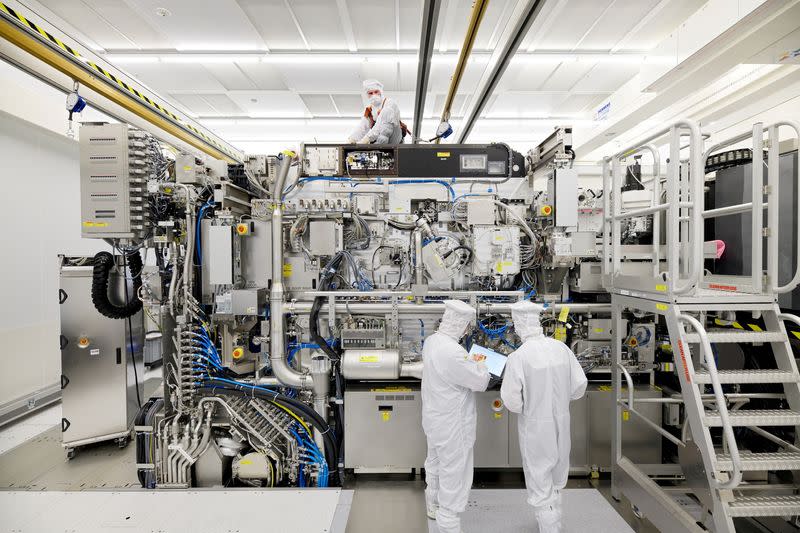The United States is pushing key allies to expand their curbs on advanced semiconductor technology to a far greater number of chipmakers in China.
A top US official was headed to Japan after meeting with the Dutch government in a bid to further restrict China’s ability to make cutting-edge chips, a source revealed on Tuesday.
Alan Estevez, the US export policy chief, is seeking to build on a 2023 agreement between the three countries to keep chipmaking equipment from China that could modernize its military.
ALSO SEE: Vietnam’s Internet Cables ‘Down’, Days Before Putin Visit
The US first imposed sweeping restrictions in 2022 on shipments of advanced chips and chipmaking equipment to China from the likes of California-based Nvidia and Lam Research.
Last July, to align with US policy, Japan – home to chip equipment makers Nikon Corp and Tokyo Electron – curbed exports of 23 types of equipment, from machines that deposit films on silicon wafers to devices that etch out the microscopic circuits.
Then the Dutch government began to regulate Netherlands-based ASML’s deep-ultra-violet (DUV) semiconductor equipment to China and the US imposed restrictions on additional DUV machines to a handful of Chinese factories, claiming jurisdiction because ASML’s systems contain US parts and components. ASML is the world’s top chip equipment maker.
Washington is now talking to allies about adding 11 more Chinese chipmaking factories to a restricted list, the person said. There are currently five factories on the list, the person said, including SMIC, China’s largest chipmaker.
The US is also saying it wants to control additional chipmaking equipment, the person said. However, a spokesperson for the US Commerce Department declined to comment.
US officials visited the Netherlands in April in a push to stop ASML from servicing certain equipment in China. Under US rules, American firms are barred from servicing equipment at advanced Chinese factories.
But the ASML servicing contracts are still in place, the person said, explaining that the Dutch government does not have the extra-terratorial scope to cut them off.
The Chinese Embassy in Washington did not immediately respond to a request for comment.
Sanctioned Chinese telecoms giant Huawei last year came out with a phone powered by a sophisticated chip. The Huawei Mate 60 Pro was seen as a symbol of the China’s technological resurgence despite Washington’s efforts to restrict access to the most advanced tech.
- Reuters with additional editing by Jim Pollard
ALSO SEE:
US Trade Groups Want a Hearing on Biden’s China Tariffs Hike
Biden Ramps US Tariffs on Chinese EVs, Metals, PV Cells, Chips
US Releases Detailed Rules For Export Curbs on AI Chips to China
US ‘Drawing Up List of Sanctioned Advanced Chinese Chip Fabs’
China Bans Government Computers From Using Intel, AMD Chips: FT
China’s Retaliatory Bans Could Cost US Tech Giants Billions
China’s SMIC May Have Breached US Curbs With Huawei Chip
Beijing’s Push to Dump Foreign Tech on Display at China Chip Fair
Global Chip Sector ‘Can Never Return to its Pre-Covid Set-up’
Any Expansion of China Chip Curbs Will Risk Business, ASML Says
Report Explains How China Got Round US’s Initial Chip Curbs
























